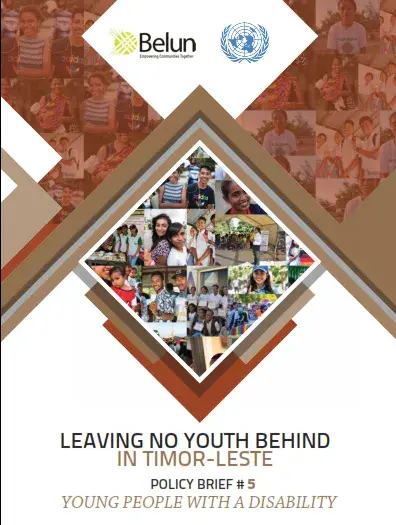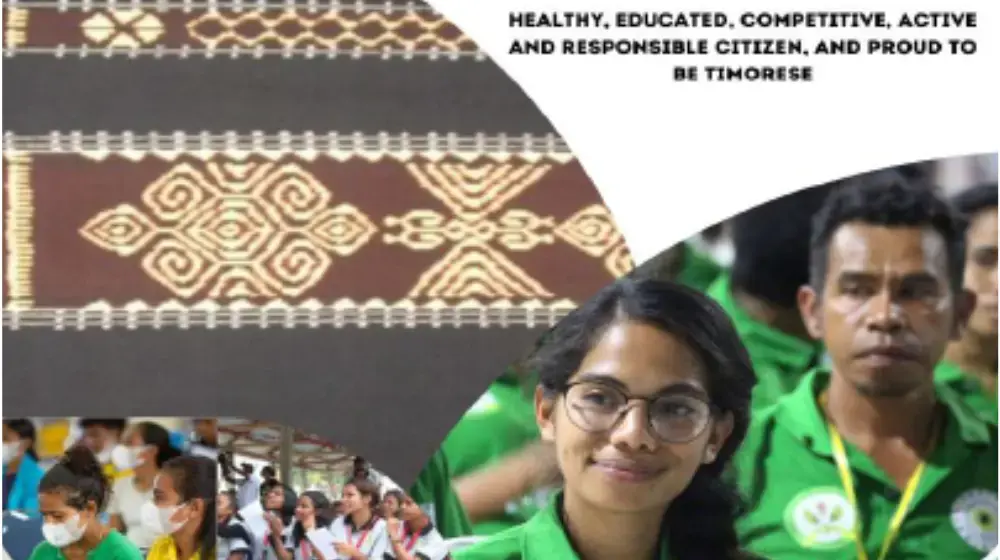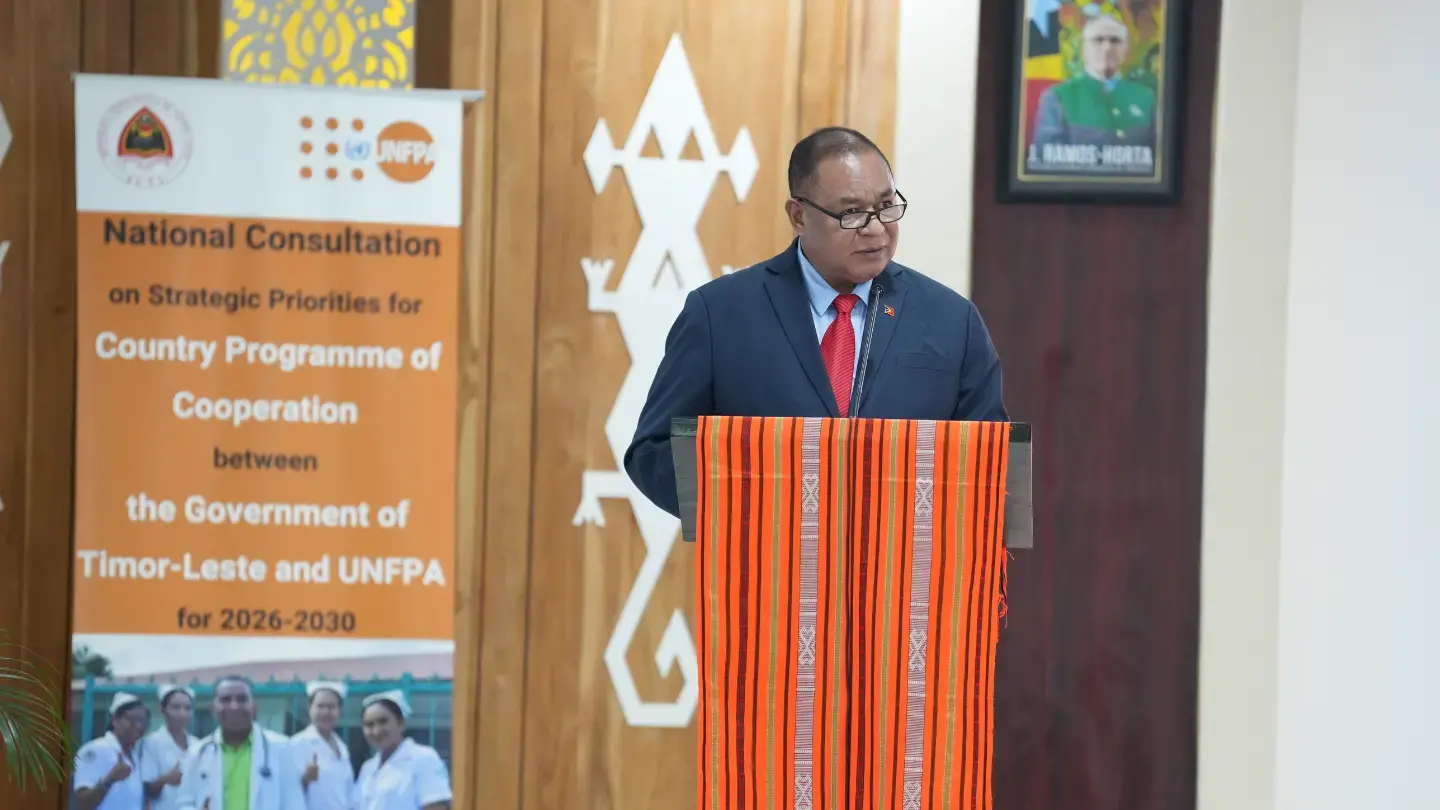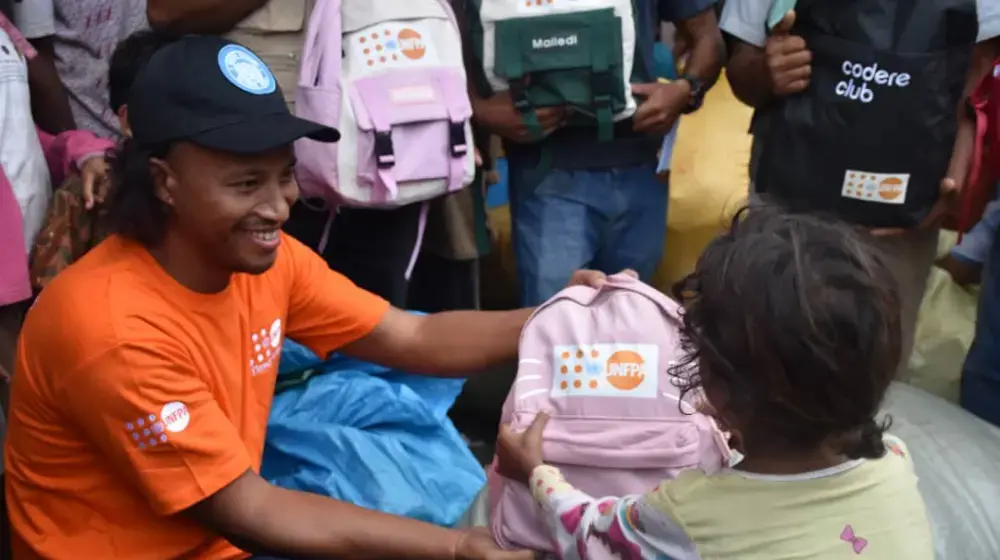Background
Many persons with disabilities worldwide, including youth with disabilities, face more barriers
to exercise their rights compared to their peers who do not have a disability. Many face
discrimination, stigma, and exclusion on the basis of their disability, from their family, the
community, and the society at large. Persons with disabilities have higher rates of poverty,
while women with disabilities are especially vulnerable to gender-based violence. Persons
with disabilities experience challenges in accessing services, including as these are not physically
accessible, due to poor attitudes of service providers, or as the services are not adapted
to
the needs of persons with disabilities.
Timor-Leste is committed to ensuring the equal rights of persons with disabilities. The Constitution
prohibits discrimination based on physical or mental condition. A National Policy on
the
Inclusion and Promotion of the Rights of Persons with Disabilities was adopted in 2012. A
National
Action Plan (NAP) on the Rights of Persons with Disabilities (2014-2018) exists to
implement
the aforementioned policy, and in 2017, the Council of Ministers adopted an Inclusive
Education Policy. The 2016 National Youth Policy specifically identifies young people with
disabilities
as a priority target group for support.
Despite these commitments, gaps remain. As of March 2018, Timor-Leste had not yet ratified
the UN Convention of the Rights of Persons with Disabilities (CRPD). Implementation of the
NAP - according to a mid-term evaluation by Organizations of Persons with Disabilities
(DPOs) - was limited. The establishment of a national disability council by Government,
planned for several years, remained pending by March 2018. Notwithstanding progress, many
services are not yet accessible for persons with disabilities.





